- Home
- Gerald Hammond
Thin Air Page 11
Thin Air Read online
Page 11
‘It begins to look very black for young Brett,’ Sir Peter said sadly.
‘It would,’ Ian said, ‘but for the other evidence I just mentioned. You know the farmhouse at Staundinstane?’
Sir Peter gave one of his short yaps of laughter. ‘Know it? I can see it from here,’ he said, nodding towards the window. ‘What’s more, I used to own the whole place. I sold it to an insurance company just before the price of farms did its nose-dive,’ he added with satisfaction. ‘I kept the sporting rights, though.’
Leaning sideways, I could make out the upper half of a farmhouse that I had never known was there. It was small in the distance and peeped over the swell of the ground that hid it from Tansy House.
‘The tenant’s old mother lives upstairs,’ said Ian. ‘She’s more or less confined to her room, without anything to keep her occupied except the window and the telly. I wouldn’t wish that fate on anybody, but chairbound old folk are often our best witnesses.
‘She had the one o’clock news on, but she wasn’t very interested – there was nothing new on the bulletins. She was looking out of the window while she waited for Neighbours to come on. She could see Brett zigging and zagging around on the tractor, doing all the odd jobs, and nobody else was in sight.’
‘Could she recognize Brett at that distance?’ I asked.
‘Probably not. But that doesn’t matter, because there was nobody else driving a tractor around on Easter Coullie land.’
‘You’re sure of that?’ asked Sir Peter.
‘That there was only one tractor circulating? She’s quite adamant on that point. She says that, just before the mid-news summary came on, three figures walked along the track from the gully and soon afterwards whoever was on the tractor stopped it, stood up to look towards here and then came haring back to the farmyard, still on the tractor. That would be just about when Brett arrived. On the tractor.’
‘Which leaves you without any suspects at all,’ said Sir Peter.
‘Except, possibly, Mrs Heminson. All the obvious and simple theories seem to be discounted,’ Ian said gloomily. ‘So it’s back to square one again. Up the ladder and down the snake. What I have to do now is look for unlikely scenarios, assuming premeditation and complicity, while checking everybody’s statements and timetables against Forensic’s findings, looking for discrepancies and hoping against hope that my men on house-to-house enquiries can turn up yet another witness.’
‘Sooner you than me,’ I said. It seemed to be a moment when a little lightening of the atmosphere might be appreciated. ‘There are sheep all over the place. Would the old lady have noticed if somebody had crawled across the ground wrapped in a sheepskin?’
Sir Peter snorted with suppressed laughter, but it was a measure of Ian’s desperation that he took the suggestion seriously for a few seconds. We had to point out to him that such a disguise might have fooled an old lady half a mile away but it would not have deceived us, or Brett on his tractor, or Mrs Heminson at a window of the house.
*
Somebody, probably Brett, would have had to break the news to Mrs Heminson that, on top of being widowed, she had also lost her younger son. I was only glad that that duty did not fall to me. She took the news bravely, or so we were told, but although she had not suffered the suspected stroke her blood pressure was still high and it was decided to keep her for another night in the hospital. (Nothing remains secret for long in a small community when there is drama in the air, not even medical records.)
Alice could not bear the thought of Brett being left to fend for himself, alone in the farmhouse but for the comings and goings of any police still on duty and in need of the facilities. While I took Boss and the children for a walk through the wood behind Tansy House and up the hill, she drove to Easter Coullie and dragged the politely reluctant Brett back with her to share our evening meal.
He was not the most cheerful of company. He tried to interact with the children but they soon sensed that his heart wasn’t in it and went more willingly than usual to their beds.
It would almost have been healthier, I felt, if Brett had let himself go and got plastered, but he refused all but the minimum of token drinks and worked hard to maintain polite conversation. Ronnie looked in during the evening but, finding neither drink nor gossip flowing, soon went on his way again.
Alice, ever warm of heart, offered Brett a bed – in the form of the couch in my study – for the night, but he refused. ‘I maun be away home,’ he said. ‘The police have left the house a’ tapsalteerie. Mam will be home the morn and it’ll be less of a shock if she finds it clean and redded.’ He paused and shook his head as though to dispel unwelcome images. ‘Murdo was never meant to be happy,’ he said. ‘Even as a wee lad, when things went wrong for him he wouldn’t scream or cry. He’d just go away into a world of his own and you couldn’t get a word out of him. And if he got a gift or a treat that’d have sent another kid wild with joy he seemed to question it, as if he was wondering if it was what he really wanted. It seems to me that if you have to wonder if you’re happy, you’re not. Maybe young Sheila could’ve put some life into him, but I don’t know. Perhaps it’s as well that they’re away together, him and Dad. They’ll be company, and surely Dad’s left his headaches behind him.’
There was a quaver in his voice and I found myself with nothing to say.
‘But can you manage on your own?’ Alice asked. She has no great opinion of a man’s ability to clean a house.
Brett cleared his throat. ‘Aye,’ he said briskly. ‘Fine that. I’m a dab hand wi’ a duster and I ken where things belong.’ He paused, sensing our concern. ‘I’ve slept in an empty house afore now,’ he added.
I would not have cared to sleep alone in a house two of whose occupants had died in uncertain circumstances within the previous thirty-six hours, but perhaps writers suffer from an excess of imagination. We let him carry his sorrow away with him, on foot through bright moonlight, then shared the washing up and settled cosily in front of the television for what was left of the evening.
In the morning my mind was still full of the puzzle, but I could think of no excuse to go and try to extract the latest news from Ian. WDC White had taken with her the floppy disk containing her transcripts of the statements and when I tried to recover her material from the memory of the word processor I found that she had overlaid it with a mildly insulting message followed by a stream of gibberish.
The word processor seemed to be waiting for something. A record while my memory was fresh might be valuable later. It might also clarify my thinking. I recalled my original statement from the disk and began amplifying it into the full story that I knew I would write some day. I broke for lunch and returned to work. More and more detail, some probably irrelevant and some certainly not, came rushing back and I set it all down.
I had brought my account almost up to date when I awoke out of the drugged state that comes over me when I am writing and I realized that a car had stopped in the road below. I stood up on my chair – the only way in which I can see over the rockery.
Most farmers do themselves well in the matter of cars, before tax and on the machinery account. But Old Murdo’s cheese-paring had extended even into this area and it was his worn-out Lada that stood below. Mrs Heminson was struggling up the steps on Brett’s arm.
Wondering to what on earth we could possibly owe the honour, I hurried to the front door and opened it as they reached the summit. Mrs Heminson’s bulk was wrapped in a plain black dress which looked new. Brett was smarter than I had seen him, in a grey suit, white shirt and black tie.
Evidently this was a formal visit. I shook hands with them both and said sincerely how sorry I was about Young Murdo. About the boy’s father, I paraphrased as best I could Sir Peter’s well-chosen words as I led the way into the sitting room. Brett helped his mother lower herself into a substantial chair. She was a daunting figure, endowed with a square jaw, hooked nose and piercing eyes. Several moles sprouted hair. But she had courage an
d a dignity like that of a warrior after battle. Strip away the surplus flesh and the damage of the years and it was clear that she had never been beautiful but she might once have been a striking woman. It was not easy to imagine her in the arms of a younger version of Old Murdo.
Alice joined us. Her instinctive savoir faire carried her through. I could hear the kettle already coming to the boil. She stooped and kissed the woman’s cheek. ‘It’s terrible for you,’ she said. ‘I’m so, so sorry.’
‘Aye. Folk must die. That’s the way of it. But it’s hard when two go together.’ She sighed. ‘I was sure that my man was dead before I ran out of the house, but I couldn’t stop myself.’
‘How could you be sure?’ I asked.
‘I saw him go down,’ she said simply. ‘He didn’t stop or stagger. He was walking and then he just went down on the instant, atween one step and the next, like a stag that’s been—’ She broke off.
‘Would you like tea?’ Alice asked quickly.
Mrs Heminson bowed gravely. Alice left me to deal with our guests. I was dumbstruck, but Mrs Heminson had her own code of proper behaviour. Evidently, any further discussion of how her two menfolk had died would be considered a breach of manners. She spoke about the weather and the harvest prospects until Alice came back with the trolley, laden with tea and small cakes.
I was no help during the exchanges that followed. The phrase ‘Alice’s tea-party’ kept running through my mind.
At the end of a nicely judged twenty minutes, when Mrs Heminson was clearly preparing to take her leave, she came to the point at last. ‘I called in to thank you,’ she said. ‘You were kind to Brett last night, just when he needed it most. It’s aye a comfort to have good neighbours.’
‘It was nothing,’ Alice said. ‘Nothing.’
‘It was muckle. My man was doomed, he’d have been dead by the year’s end. But the boy . . .’
The doors to the walled garden stood open in the fine weather. The children chose that moment to appear, Peter first and then Jane toddling after. They came to stand one either side of Alice and looked solemnly at the visitors. With the sunlight behind them, their hair shone like halos.
Mrs Heminson’s large face began to break up. She put out a hand to Brett and he helped her to her feet. She would have said something but her voice had gone. She kissed us both and I felt the tears on her cheeks and the prickle of a stiff hair. At the front door, she found her voice and thanked us again.
‘You’ll be careful?’ I said awkwardly. Even in her distressed state I found her as formidable as any of my aunts. ‘It’s only an assumption that your son . . . made away with himself.’
She shook her formidable head. ‘This is the end of it,’ she said firmly. ‘It’s the McKee lass I’m sorriest for. Well, if there’s ever to be any grandchildren to carry on, they’ll be Brett’s. We can’t say yet when the burials will be. Brett will let you ken.’ She gave me a last, piercing look. ‘You’re no’ to feel bad,’ she said.
We stood at the top of the steps and waved until the car was out of sight. Anything less would have offended against the dignity that the farmer’s widow had pulled around herself.
Back in the sitting room, Alice dropped into a chair. ‘I could use a drink,’ she said. ‘A whisky.’
Alice never drinks spirits, but there are times when only a stiff drink will do. ‘Me too,’ I said. ‘It never occurred to me that we might be bidden to the funerals.’ I poured a dram for each of us. ‘Can’t we get out of it?’
She shook her head. ‘We’ll have to show respect.’
‘That old biddy knows something,’ I said.
‘Yes. But what?’
I glanced round to be sure that the children weren’t listening. ‘She knew that I feel bad about Young Murdo. I knew how upset he was and I did nothing about it. I was hiding my feelings, but she knew. I think she’s a witch.’
‘More than likely,’ said Alice.
We had hardly begun to unwind with our drinks when I heard another car arrive. I put my glass on the mantelpiece and returned to the front door. While the Lada ground away towards Easter Coullie, its place had been taken by a Rover, equally elderly but in a much better state of preservation.
Ralph Enterkin, the premier local solicitor, made a controlled exit from the car. He was at least as overweight as Mrs Heminson but his tubby figure somehow managed to bounce up the steps although he was puffing slightly when he arrived at the top. I welcomed him in. I liked the old fellow. Although he did still sometimes treat me as an amusingly alien creature from outer space, I found his pedantic and sometimes grandiloquent manner of speech more nearly familiar than the local dialect. It pleased me and, if it did sometimes infect my writing style, that was easily modified in the next read-through.
He accepted a chair. When I offered him a drink he glanced at his watch, to see that afternoon was on the point of becoming evening, and accepted a glass of his favourite sherry. The children went straight to him. They regarded him as a favourite uncle although, having married late and produced no children of his own, I think that he was secretly terrified of them.
Alice, who had been clearing away the tea-things, smiled a greeting. ‘Shall I join you?’ she asked.
‘For a drink, by all means,’ the solicitor said. ‘You might care to hear what I have to say, but it may prove unsuitable while these rascals are listening. My words might not be understood but they could be repeated, parrot-fashion.’
‘I’ll leave you, then.’
‘No doubt you will have it all out of your husband before I am out of sight.’
‘Long before then,’ I said, ‘knowing the speed you drive.’
Mr Enterkin looked surprised that anyone should consider him a slow driver when it was an established fact that he was alone in maintaining the ideal speed, the rest of the world’s population being dangerous road-hogs. Alice laughed, made a face at me and shooed the children back into the garden.
‘I had no wish to encounter the Heminsons here,’ Enterkin said, ‘so I have been waiting in the distance for their dilapidated vehicle to depart. I shall call on them shortly to pay my respects and to pass on much the same message as I have for yourself – although in the circumstances I suppose that I shall have to cloak it with a degree of circumlocution.’
‘You’re already cloaking it enough for any circumstances,’ I said. ‘What might that message be?’
He sipped and then looked at me over his glass. I thought that he looked, for once, embarrassed. ‘It is the first time in my long career that I have been engaged for quite so delicate a matter, so I am uncertain how to proceed.’ He sighed. ‘Best, perhaps, to plunge straight in. Wallace James and Ronnie Fiddler are being beset by the townsfolk for news of events at Easter Coullie. There is, of course, endless speculation in the town.
‘You, for your part, are the one person who was present at the finding of both bodies and has also been privy to much of the investigation. I therefore suppose you to be the – ah – person most able to speak with authority and most likely to have credibility if he should happen to disseminate some further information.’
‘In other words, spread the gossip,’ I said. ‘I’ll do what I can.’
‘Thank you. One rumour presently current seems to be that Mr McKee murdered the Murdo Heminsons Senior and Junior by means unspecified. His motive is generally believed to have been a presumed affair between Murdo Junior and Miss McKee—’
A possibility that had been lurking in my subconscious mind leaped to the surface. ‘They think that he put her in the club?’
The solicitor looked at me reprovingly. ‘Even the gossip-mongers of the town have so far refrained from phrasing it quite so bluntly. But it has been suggested that the alleged affair has resulted in her pregnancy. The refusal of the boy, at his father’s insistence, to acknowledge any responsibility for the matter, would have furnished a motive of sorts – although, in these predominantly agricultural communities and in this day and age, the motive wo
uld not be as compelling as once it might have been.
‘I have been engaged by Mr McKee both to guard his interests in the matter of any suspicion of having committed the alleged crimes and to defend the reputation of his daughter.’
My mind leaped ahead again. ‘I can see why you referred to the matter as delicate,’ I said.
‘Quite so.’
‘My own opinion, for what it’s worth, would have been that they were still in the state in which the touch of a hand is magic, a brush of lips the ultimate in amorous adventure.’
‘You would have been correct. Or so I would suppose – I have no direct evidence as to the state of their minds and emotions. This morning, Mr McKee summoned one of the family’s doctors – the lady member of the practice,’ Mr Enterkin said hastily, avoiding my eye, ‘to examine Miss McKee.’ He glanced at me sideways and saw that I disapproved. ‘I agree, a terrible thing to do to the girl, although one can understand his reasons. The outcome was that she was pronounced virgo intacta and I have a certificate to that effect which I have shown to Inspector Fellowes, much to his embarrassment.’
‘I’ll bet. I wish I’d been there to see his face.’
‘It would not have given you pleasure. So far so good. But Mr McKee also requires that I quash any rumours presently in circulation. Not the easiest of tasks. One can hardly take out an advertisement in the local paper or put up a card in the post-office, so I rely on you to see that any – um – speculation in that area is firmly quashed.’
‘Here!’ I said. ‘That’s a bit of a tall order.’
‘But one that you are perfectly capable of implementing.’
‘She’ll never live it down.’
‘I would have thought,’ he said mildly, ‘that virginity was the state most easily lived down.’
‘As you pointed out, this is a different day and age. The modern girl seems to compete to see who can be the first to get rid of it. She’ll be a laughing stock. What’s more, I can’t think of anything more certain to make her dispose of it to the first comer.’

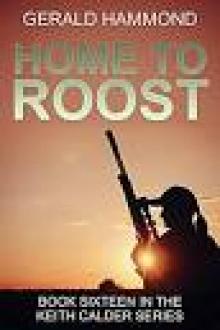 Home to Roost
Home to Roost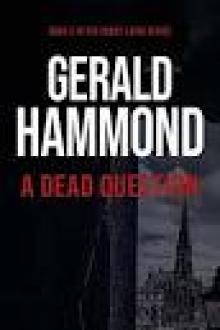 A Dead Question
A Dead Question Twice Bitten
Twice Bitten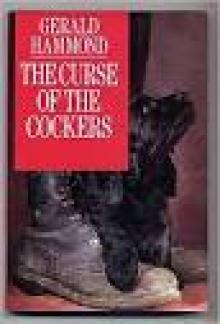 The Curse of the Cockers
The Curse of the Cockers In Loving Memory
In Loving Memory Illegal Tender (Three Oaks Book 12)
Illegal Tender (Three Oaks Book 12) Cold Relations (Honey Laird Book 1)
Cold Relations (Honey Laird Book 1)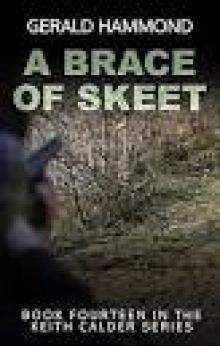 A Brace of Skeet
A Brace of Skeet Silver City Scandal
Silver City Scandal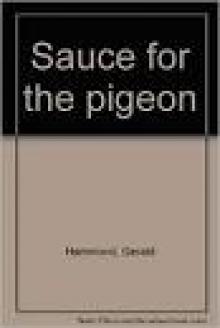 Sauce For the Pigeon
Sauce For the Pigeon Cold Relations
Cold Relations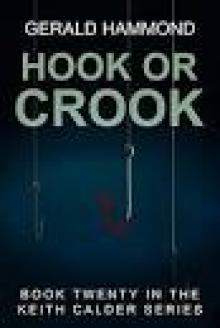 Hook or Crook
Hook or Crook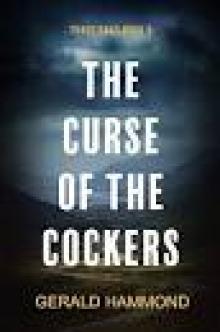 The Curse of the Cockers (Three Oaks Book 5)
The Curse of the Cockers (Three Oaks Book 5)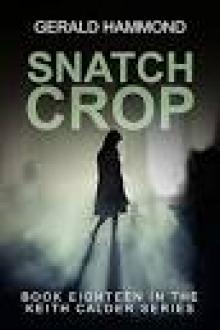 Snatch Crop
Snatch Crop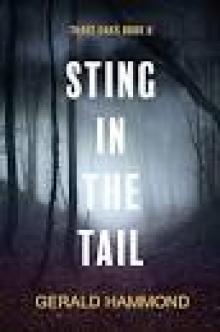 Sting in the Tail (Three Oaks Book 6)
Sting in the Tail (Three Oaks Book 6)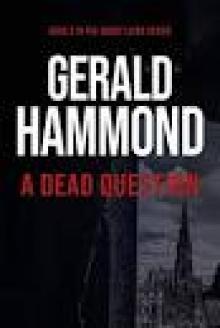 A Dead Question (Honey Laird Book 2)
A Dead Question (Honey Laird Book 2)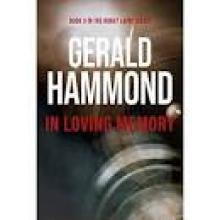 In Loving Memory (Honey Laird Book 3)
In Loving Memory (Honey Laird Book 3) Thin Air
Thin Air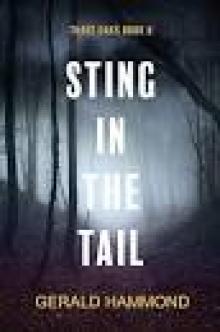 Sting in the Tail
Sting in the Tail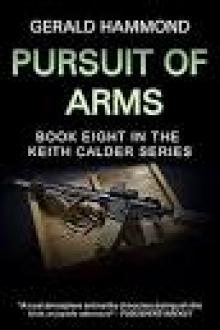 Pursuit of Arms
Pursuit of Arms The Game
The Game Give a Dog a Name (Three Oaks Book 4)
Give a Dog a Name (Three Oaks Book 4) Fair Game
Fair Game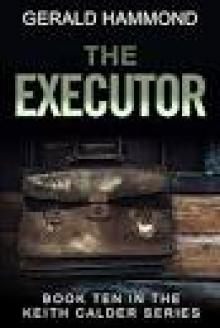 The Executor (Keith Calder Book 10)
The Executor (Keith Calder Book 10) Whose Dog Are You? (Three Oaks Book 2)
Whose Dog Are You? (Three Oaks Book 2) Mad Dogs and Scotsmen (Three Oaks Book 7)
Mad Dogs and Scotsmen (Three Oaks Book 7) Cousin Once Removed
Cousin Once Removed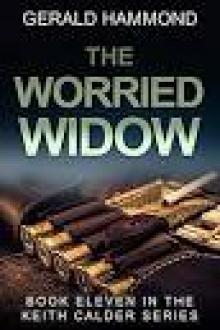 The Worried Widow
The Worried Widow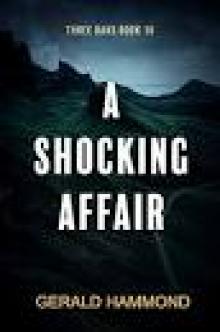 A Shocking Affair
A Shocking Affair Dead Weight (Three Oaks Book 11)
Dead Weight (Three Oaks Book 11) Whose Dog Are You
Whose Dog Are You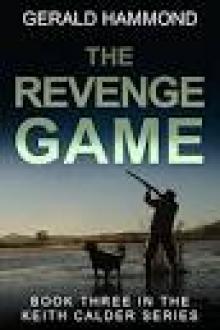 The Revenge Game
The Revenge Game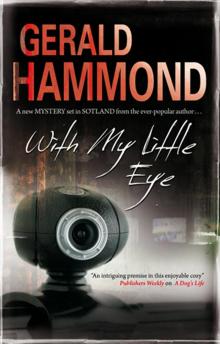 With My Little Eye
With My Little Eye Doghouse (Three Oaks Book 3)
Doghouse (Three Oaks Book 3)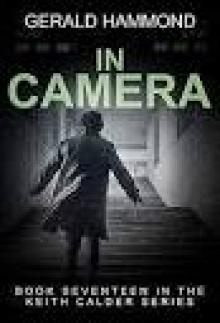 In Camera
In Camera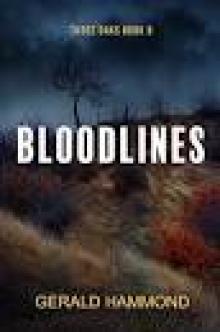 Bloodlines (Three Oaks Book 8)
Bloodlines (Three Oaks Book 8)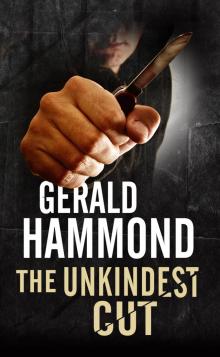 The Unkindest Cut
The Unkindest Cut